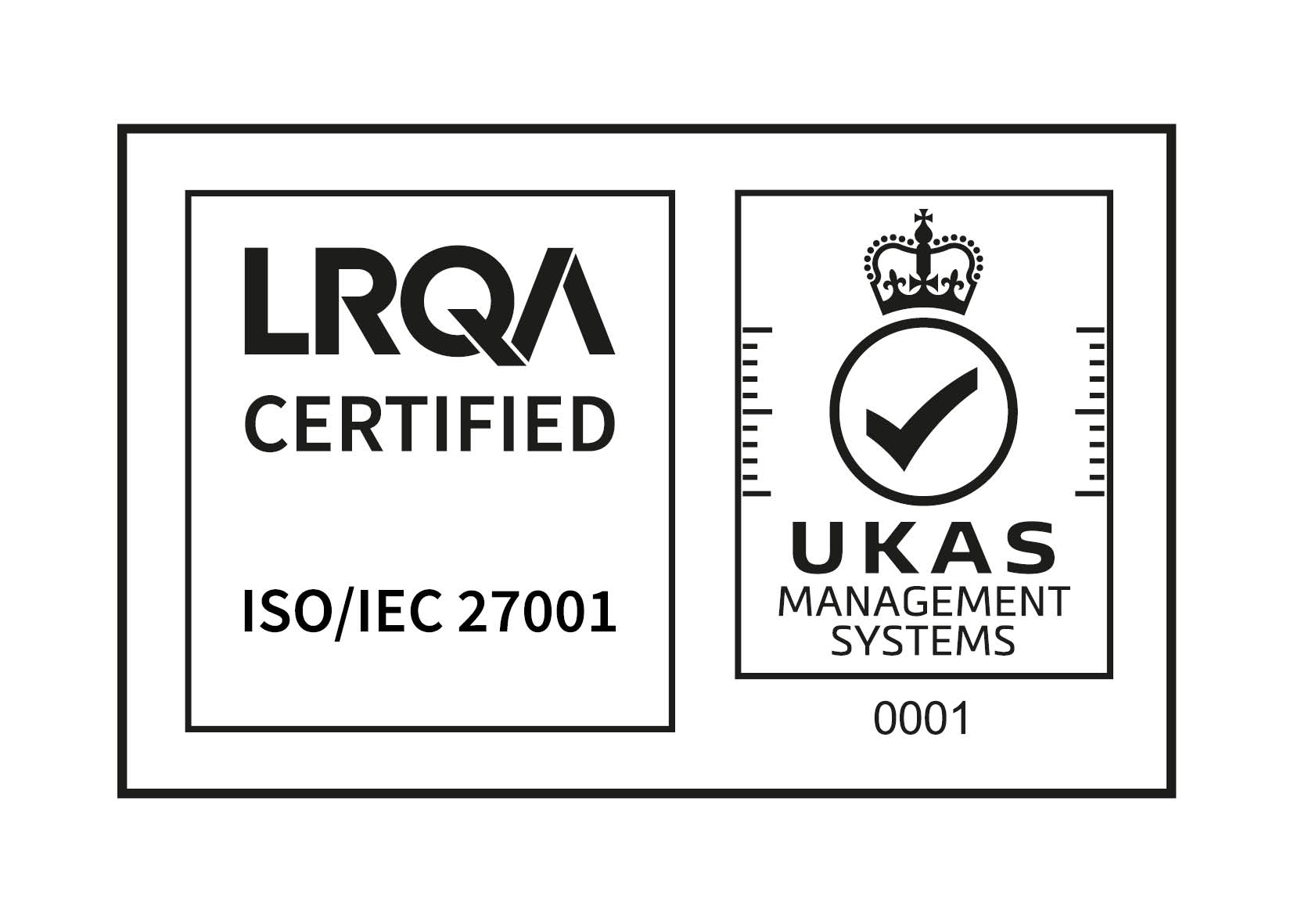
Are we complicit in the "Great Resignation"?
30 January 2022
Stuart Murdoch

It is often said that the best people in Computing only change job two or three times in their career, and when they do, it won’t be as a result of them searching. They are more likely to find their next role through the connections they make, for example through contributions to open-source projects, or their reputation on Stack Overflow.
The way Surevine recruits is rooted in that understanding, and an extension of our Way of Working, but we are finding ourselves challenged by a market for talent which is behaving unlike anything I have ever seen, at least as far back as the 1980s.
Surevine was founded with a “working out loud” culture. We adopted that approach because we have always worked as a distributed team (as a topical aside, that means there’s no threat of a post-COVID “back to the office” for our people.) We modelled our Way of Working on the way open-source projects are run: develop in the open, work as if you are developing open source software, even when you aren’t.
Our approach to growing the core Engineering team was founded on the same principles: how do open-source projects attract talent? In all likelihood, the people we need are people we are already connected to. So, if we can see your contributions on GitHub, a CV is just an added extra. If a candidate is known to someone in the company, they are guaranteed a fast-track to the final stage of selection.
Uniquely, for our Engineering team: we dispensed with the interview. Instead, we invite candidates to join us for what we call a “Day in the Life” (DiTL). We know that changing job is amongst the biggest life decisions people make (right up there with choosing a life partner or a home.) We know people will want to make that decision with the best available information.
We also assume that any Engineer that gets to the DiTL will relish the opportunity to spend time doing what they love. Everything we do in Computing can be seen as a puzzle; a problem that needs solving, whether it is a bug or a brand-new service. Because we love problem solving, being presented with another puzzle to solve is something that we relish, we roll up our sleeves and get stuck in.
We don’t want to ask people to do a weird thing they don’t usually do (an interview). We ask them to spend some time working alongside us, doing what they do every day. This gives them the best chance to figure out whether the types of problem we are addressing, the way we go about it, and the ethos of our people are something worth making a big move for.
It gives our people an opportunity to do the same: see how the person works, thinks and interacts. Are they a “heads up, rather than heads down” team player? Do their values align with ours? Would they enrich our culture? Would they add to the diversity of thinking and approaches in the company?
All along, our assumption is that they can do the job. A DiTL is not really a technical test, its more like an audition for a choir, where you are invited to join a regular rehearsal, so we can see what we all sound like together.
Some candidates also get invited to upload a screening video in advance. This does two things: reassures us that the candidates are happy talking to a camera (how a distributed team works every day); and it also allows them to do their screening interview asynchronously at a time that suits them, so they don’t have to make awkward excuses about their absence during the working day. The approach isn’t ideal, but asynchrony is an aspect of the open-source development approach which inspires our Way of Working. Maybe, given the rise voice recordings on WhatsApp, or video clips on TikTok, over text messages, this is becoming more normal.
But then COVID hit, and it completely shook up the market. During the first lockdown, no one moved jobs. We had people who we would otherwise naturally had moved on, that stuck with Surevine.
Applications also dried up. Surevine has always been a net attractor of talent, but people’s thoughts during the first lockdown weren’t about moving jobs, they were uncertain about how long this was going to last, their health and how to balance commitments at home. Then, as we came out of that first lockdown, there were signs of flight to security: if this pandemic continues, am I going to be able to pay the mortgage?
We are now in the in the grip of the great resignation. Has that initial grasp for stability been superseded by more fundamental thoughts about how people want to spend their life?
Surevine have always had an extreme approach to flexibility: there are no “core hours”, people work the hours that they agree with their team. When we founded Surevine over a decade ago, the Founders established a precedent by doing the school run, sharing extra-curricular activities etc. We always expected our people to enjoy the flexibility and do the same (maybe it is one reason we always seem to be celebrating a newborn in Surevine!) But even with that flexibility, we have seen a trend in our people beginning to request more, for example, downshifting to four days to spend more time with their young family while they can.
But perhaps the most perverse effects are caused by the industry’s response to this “great resignation.” Large, or venture-backed, businesses, are taking more and more desperate measures to prevent people from moving on, or snatch what talent they can. There are £10,000 joining bonuses, and similar referral bonuses for those with particularly sought-after skills. Venture-backed businesses are offering ever-more market distorting rates to attract people (their investors won’t allow the management team to take a slow, steady approach to growth, so they are pushed to hire, literally “at all costs”.) This, then, is echoed by the large systems integrators (the oligopolies that dominate the IT sector in the UK, particularly in the public sector) who find themselves drawn into the same game. We were presented with a degree apprentice looking for their first post-apprenticeship role who thought it was realistic to ask for a salary of £80,000.
These figures aren’t yet those of the frothy, venture-backed Silicon Valley where a Computing graduate can earn over $100k for their first role. US investors interested in UK technology start-ups are often attracted by the relative stability of UK Engineers as compared to extremes like Silicon Valley. There, the turnover is high, measured in months. Here, they could see an equally skilled, but a more stable and affordable workforce.
So, who is to blame, and what are we to do about it?
Whether or not you think recruitment agents are to blame, or they are merely responding to market conditions, they patently have the effect of amplifying the problem. Where an agent receives a commission based on a percentage of the salary, and a bonus for how quickly they are placed, they are directly incentivised and rewarded by ever-inflating salaries. They are likewise going to avoid anything that introduces a delay: be that traditional multi-stage selection or Surevine’s unique Day in The Life.
If you were approached by an agent telling you they have fantastic candidates but they are not prepared to do technical tests or more than a one-stage interview; how would you respond? How would your team respond if they weren’t involved in the selection? How likely are they to feel confidence in a fellow team member who expressed a preference for doing an interview over something more technical?
One exacerbating, and longer-running factor affecting Surevine and other organisations with a public service ethos is, what is either an over-confidence from public sector organisations in their ability to distort the market in their interest, or an ignorance of the existence of a market for talent.
Over the decades I have been working in the industry, this has been a cyclical pattern: a Government Department becomes concerned it has too-many contractors working for it, so it decides on an arbitrary limit on the number. They decide that they are paying too much for those contractors; so, they set a limit on the rate. They are concerned they are being fleeced by the private sector; so, they set a maximum profit margin. They are concerned that people are moving jobs to (heaven forbid!) earn more money, so they place restrictions on those same people coming back to work for them via a different company.
What all these clumsy interventions serially fail to understand is that there is a market for talent. There aren’t enough people with the skills required by the industry, and the laws of supply and demand mean that the rates will go up. Trying to artificially set the rules of engagement won’t make that demand diminish, it will push talented people out of the sector. It will force the big systems integrators to become complicit in the behaviour and adopt their own restrictive practices: “flowing down”, mirroring, or in some cases, lobbying for the changes to try and prevent people who are unhappy working for them from leaving.
Surevine are a home-grown, bootstrapped, organically grown business. Built by Engineers for Engineers. We have benefitted from remaining privately owned, we have enjoyed our status as a net attractor of talent. It has meant that we have been able to build a sustainable business for the long-term without external pressure for short-term growth, whatever the long-term cost. It is because of this that we have been able to design a way of identifying, selecting and nurturing the people that have gone on to build the rock-solid foundations of our company.
But we have been forced to question this approach internally: does our unique way of recruiting still make sense? We are asking how and whether we need to adapt to a changing market. If there is a gold-rush out there, are even usually level-headed engineers going to get caught up in it, and we will simply miss out on that talent? Or can we rely on the fact that the best people don’t change jobs that often, and when they do they do it is a big decision which they won’t want to rush? Will those people continue to value, above all, doing interesting work surrounded by smart people?
And ultimately, aren’t people who get hired on a salary which does not correlate to the value they deliver for the Company or that our clients are prepared to pay for, simply going to end up back on the market just as quickly as they were hired?
One thing that I am certain of, is that each of us has a choice to make around whether we are complicit in exacerbating the problem: a candidate can choose not to accept an inadequate recruitment process; an employer can decide not to accept pressure from candidates or agencies to short-cut the process.
Can we also hope that, as start-ups build through scale-up to become cornerstones of the UK technology industry, the patience it required for them to stick the course, will itself perhaps lead to a demand for more patient capital, interested in sustainable growth of businesses formed of equally committed teams of people, to the long-term benefit of the industry and the wider economy of the UK.
Can we afford to hold our nerve and find out?




